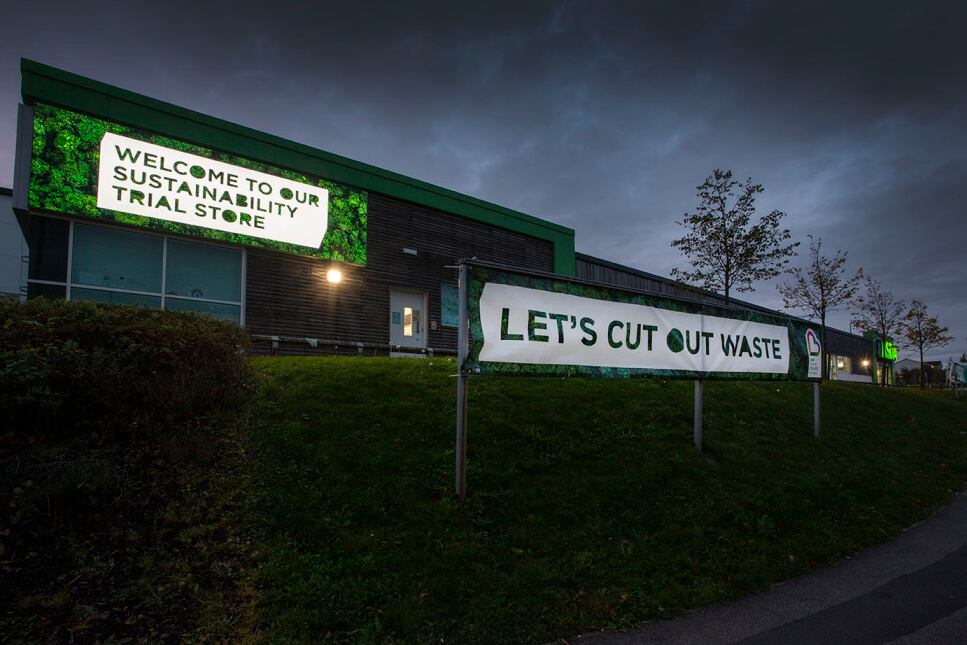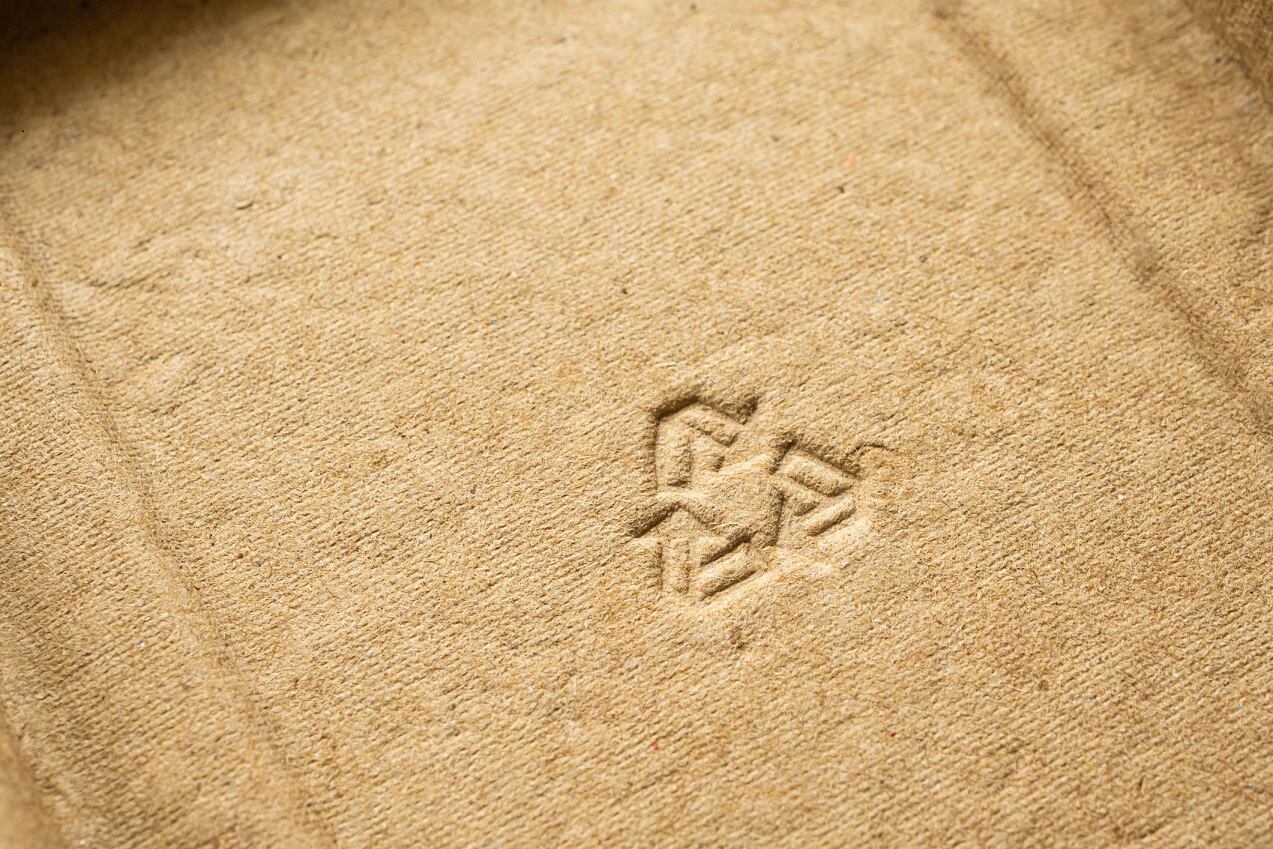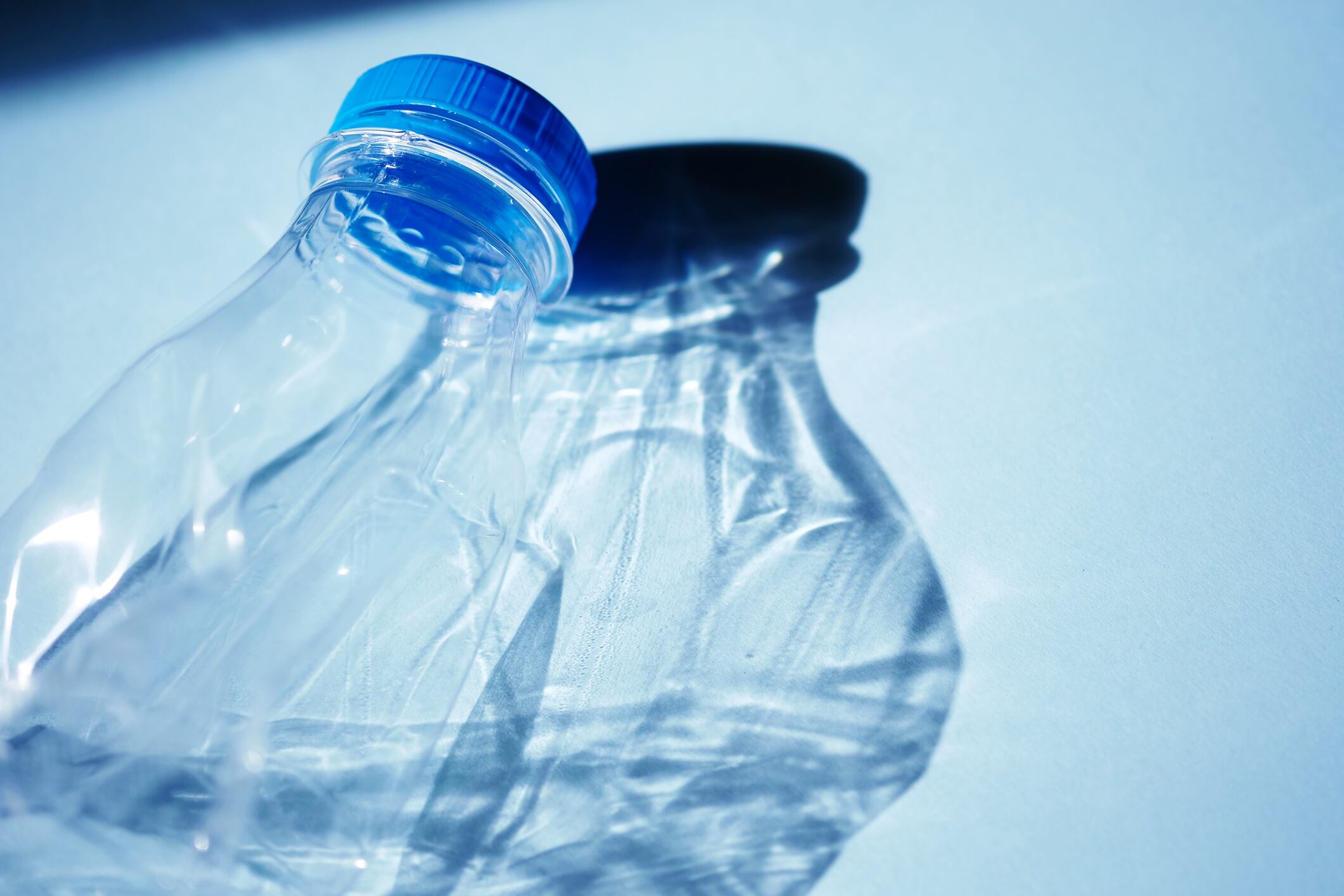Asda has opened a sustainability trial store in Middleton, Leeds, that is designed to help shoppers reduce, reuse and recycle ‘with ease’.
The concepts being tried out at the pilot store form part of Asda’s plastics strategy. In 2018, the supermarket set a weight-based target of 15% reduction in plastic packaging by 2021. Since then, the company has removed over 9,300 tonnes of plastic from its own brand products. Now it has introduced an additional commitment to remove 3bn pieces of plastic from own-brand products by 2025.
The retailer is also committed to generating zero carbon emissions by 2040, reducing waste by 50% and having a net regenerative impact on nature no later than 2050.
The UK retailer estimates the initiatives being piloted at the site will save a million pieces of plastic per year.
The ‘sustainability store’, Asda said, will be used to test and learn what elements of its new offer have most consumer appeal and can be developed at scale. The company said it is looking at ushering learnings to more locations as early as 2021.
In line with Asda’s ‘everyday low price’ (EDLP) positioning - and its new strategy for plastics and sustainability which focuses on price and availability - the supermarket also launched a national price promise that loose and unwrapped products will not cost more than their pre-packaged equivalents, dubbed ‘Greener at Asda Price’.
Roger Burnley, Asda’s CEO and President, said the initiative is an ‘important milestone’ in the company’s journey to ‘tackle plastic pollution and help our customers to reduce, re-use and recycle’.
“This is an issue that matters greatly to our customers – our own insight tells us that more than 80% believe that supermarkets have a responsibility to reduce the amount of single use plastics in stores. We want to give them the opportunity to live more sustainably by offering them great product choices and value, underpinned by a promise that they won’t pay more for greener options at Asda,” he commented.
The innovation has been welcomed by environmental campaigners, who argue that the supermarket sector needs to mount a more effective response to consumer demand for a reduction in plastic use.
“We need to see so much more of this from across the supermarket sector. UK consumers want to ditch plastic. The supermarket sector needs to listen to its customers and shift to plastic free groceries and reuse and refill options both in-store and throughout their online delivery operations,” Nina Schrank, lead plastics campaigner at Greenpeace UK, said.
Indeed, concerns over plastic waste remain high in the UK. Plastic waste is the top global environmental concern for British shoppers, according to a Kantar report from June this year when 60% of shoppers said they will use a refill option if it is available.
Christina Dixon, Senior Ocean Campaigner at the Environmental Investigation Agency, echoed the need for such initiatives to scale: “To beat plastic pollution, we need bold system change and innovative approaches to re-use and refill, so we hope the lessons from this store can be scaled across the country and inspire sector-wide change to shift away from unnecessary and single-use plastics.”
What’s in store? From refill stations to lose fruit and veg
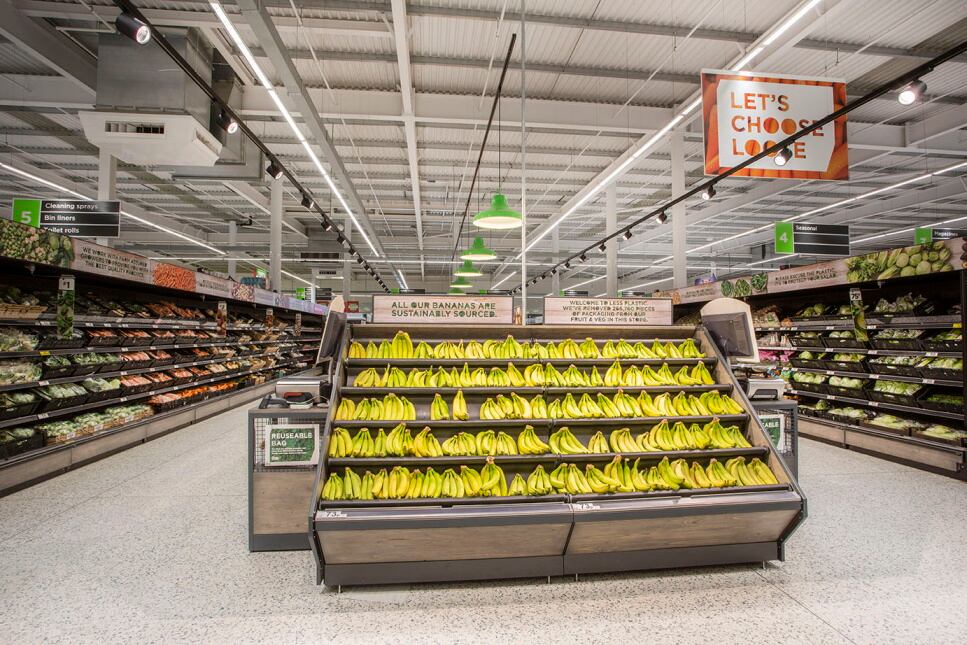
Designed with sustainability in mind, the new store offers a number of eco-features including recycling facilities for items like crisp and biscuit packets, as well as Asda’s first reverse vending machine for cans, plastic and glass drinks bottles.
A total of 53 fresh produce lines are available in loose and unwrapped format including 29 new lines such as cauliflowers, mushrooms, apples, cabbages and baby plum tomatoes. And plastic packaging will be removed from the outer plastic wrapping on several popular Heinz and Asda brand canned multipacks including beans and soups.
Perhaps most eye-catchingly, Asda is launching 15 refill stations that dispense a collection of more than 30 ‘household staples’ in a refillable format.
Products include a selection of Kellogg’s cereals; Unilever-owned PG Tips tea bags; PepsiCo-owned Quaker Oats; Lavazza and Taylors of Harrogate coffee beans; and Nichols’ Vimto brand soft drinks. Alongside these branded items are a range of Asda own label rice and pasta.
Asda said it wants to introduce over 40 refillable products by 2023 and invest in 50 closed loop and circular projects by 2030.
Partnering on plastics: Unilever welcomes 'test and learn' opportunity
Asda stressed the importance of partnership and collaboration with its suppliers to develop these new formats.
“We have always known that we couldn’t go on this journey alone, so it is fantastic to work in tandem with more than twenty of our partners and suppliers, who have answered the call to test innovative sustainable solutions with us,” Burnley noted.
One such supplier is Unilever, which has itself promised to halve its use of virgin plastic and remove more than 100,000 tonnes of plastic packaging from its portfolio by 2025. To get to this point, Sebastian Munden, Executive Vice President of Unilever UK & Ireland, said the company will have to be ‘bold’ and ‘totally rethink products and packaging’.
PG Tips and Pukka teas will be among the Unilever brands available through self-serve containers or ‘hoppers’ for loose tea and tongs to self-dispense fully biodegradable teabags. Shoppers will be able to take their own reusable container into store or buy one there. Once their container is full, they take it to the weighing station where a label is printed ready for payment at the checkout.
Munden said the initiative was a ‘great opportunity’ to ‘test and learn’ in a real-life scenario.
“It's a great opportunity for us to find out, across seven of our leading brands, just how shoppers respond to using refillable and reusable packaging in-store. We are all committed to driving lasting change when it comes to plastic, but to do so we must create scalable solutions and make it as easy as possible for people to make sustainable choices.”
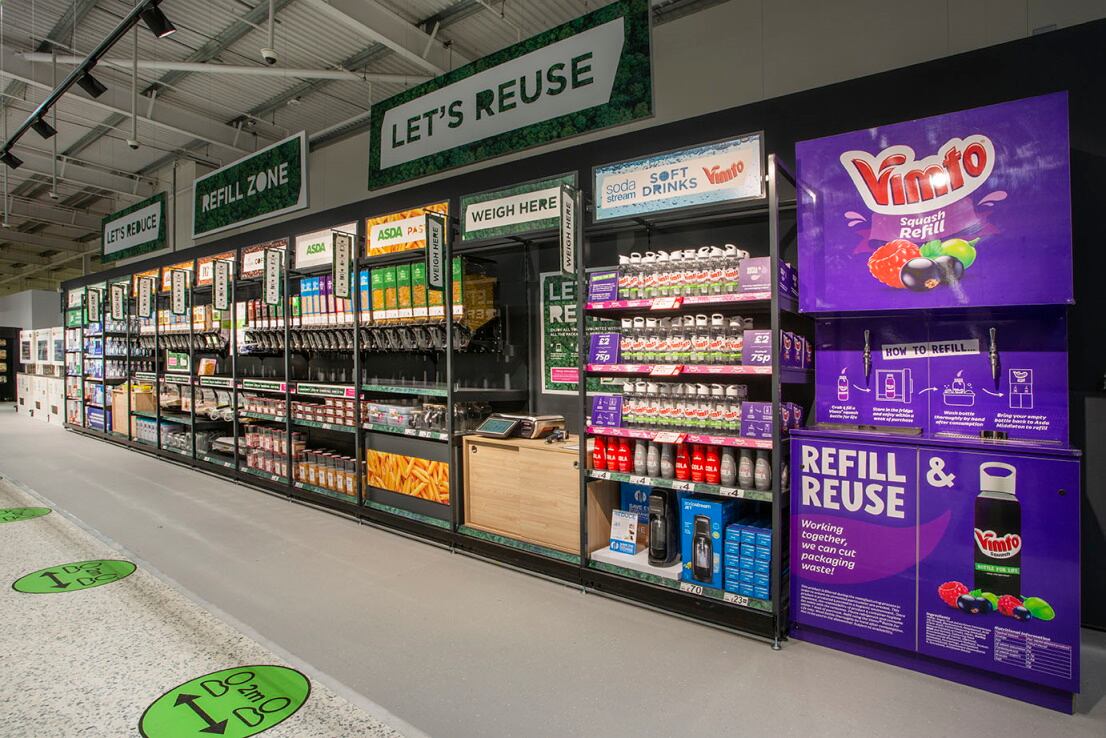
Ditching packaging ‘raises questions’ for brands
While Asda should be ‘lauded’ for its ‘tentative steps’ to figure out what resonates with shoppers and what does not, Callum Saunders, Head of Planning at Zeal Creative, said that the move would 'raise some interesting questions’ for brands if adopted at a large scale.
“A product’s packaging is valuable on multiple levels, from the use of distinctive assets that help shoppers navigate and select products in store, to a vehicle for communication and promotions. Arguably, the removal of packaging strips away a lot of a brand’s ‘value’, leaving only a ‘commodity’ product behind. Great news for the planet; perhaps less so for a brand’s equity and health scores,” he told FoodNavigator.
“The removal of packaging also removes a brand’s ability to communicate with every shopper that picks up its products in store. In a world with no ‘packs’, the role of ‘on-pack’ promotions would need to be rethought. How will brands and products be able to add value in a retail environment where they have been reduced to dispensed commodities?”
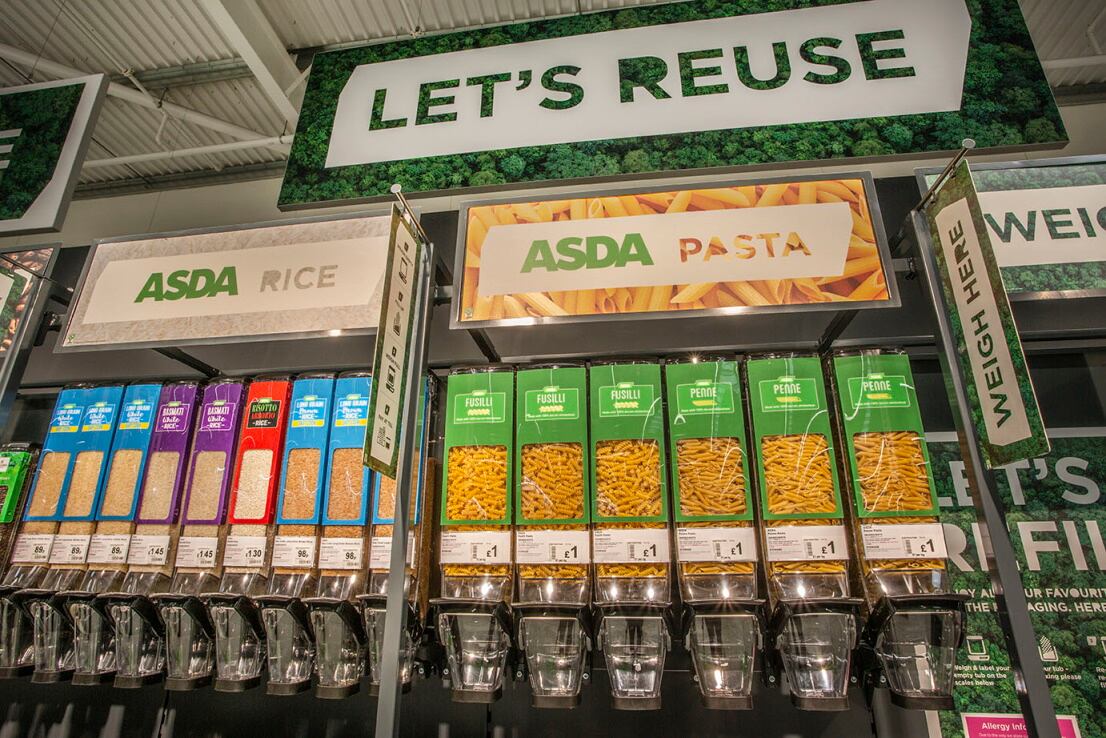
Brands are therefore likely to look at the dispensing machines themselves as a brand-building opportunity. Nevertheless, Saunders warned that disposing of non-disposable packaging could mean brands need to redefine their USP. “In an age of EDLP and the rise in quality of own label brands, a widespread move to dispensed products could perhaps see a shift back to focusing on product quality and attributes as a key point of difference.”
Saunders also stressed that going packaging-free is one of many routes to delivering a more sustainable food footprint. “Refill stations are not the only route to a more sustainable future for FMCG and grocery retail. Whilst plastic packaging has served a purpose including food safety, hygiene along the food chain and containment of allergens, it’s important to note that ‘packaging’ is not the default enemy. New forms of packaging are already available, including bio-plastics, as well as compostable packaging. Most recently, we have seen Seedlip, the alcohol-free spirit, has launched a product packaged in a material made from mushrooms, compostable in a matter of weeks.”
And while shoppers might say they are open to refills, the truth is that shopper behaviour is likely to prove somewhat more complex. For instance, to shoppers picking up a few bits on the way home from work or eating on the go, sustainability ‘becomes a barrier rather than an enabler’.
Saunders elaborated: “Widespread change is necessary, but it will take time to change shopper behaviour at scale. As people, we have been conditioned for a world of convenience and immediacy: shopping for groceries at a refill retailer comes at a significant cost to that. Shopping trips will inherently need to become more planned, with shoppers transporting a great deal of containers and packaging ‘in’ to stores. This is a behaviour that will take a long time to adopt en masse, and is one that is needed for the health and future of our planet.
“The future is a world with sustainable packaging, as well as no packaging.”

